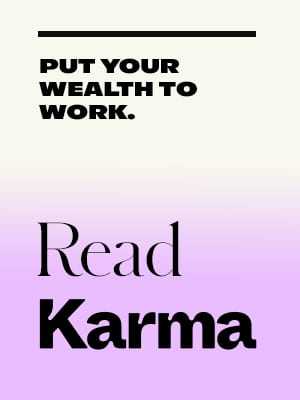Ice age, meltdown, flooding. When the world’s most famous punk band rocked out on the Thames on a wet December night in 1979, singing about the end of the world, it struck a chord. Sure, punk was all about lifting a middle finger to late-20th century consumerism and conformity.
But The Clash’s “London Calling,” released in the U.S. in January 1980, instantly felt less like studied cynicism and more like an honest appraisal.
Rolling Stone called The Clash’s double album, anchored by the title track, “a series of insistent messages sent to the scattered armies of the night, proffering warnings and comfort, good cheer and exhortations to keep moving.” The Clash were the last punks fighting the good fight when they released “London Calling.”
Then came the 1980s and yuppies grabbed back the reins of the culture while the song became a touchstone and then, as happens, a commercial jingle.
Four decades later, as climate activist Greta Thunberg tells world leaders at Davos “our house is on fire,” it’s hard not to think back to the lyrics Joe Strummer and Mick Jones wrote and see a bookend to a period when the world vacillated between caring about the planet and wishing the bad news about our environment would just go away. “London Calling” was eerily prescient not just about world climate but also social issues and even contained a subtle criticism of the music industry that rings true today, though probably not in the way The Clash expected.
Often named to “greatest” lists of songs and albums, “London Calling” originally was titled “Ice Age,” a reference to the U.S., not London, sinking beneath the waters. Strummer’s lyrics were inspired by some of the chaos engulfing the world in 1979 — from the nuclear accident at Three Mile Island to the Iran hostage crisis. The song essentially introduced the band — which would only last another four years — to a U.S. audience.
His insistent singing of the line, “I have no fear ’cause London is drowning, and I, I live by the river” could be read as flippant or resigned, which many of his listeners were surely feeling at the time.
Dystopia, to a Marching Beat
Did The Clash get the dystopian future right? The chorus starts off “The ice age is coming, the sun is zooming in. Meltdown expected, the wheat is growing thin.” The five warmest years on record have occurred since 2010 largely due to humans contributing carbon dioxide to the atmosphere, with 2016 recording eight of the hottest months ever.
While disaster at Three Mile Island was averted it took just six and a half more years before the world witnessed Chernobyl and another 25 before Japan’s Fukushima power plant would experience a triple nuclear meltdown, resulting in the evacuation of 100,000 people and a cleanup estimated to last four decades.
Is the wheat growing thin? There are few aspects of life that climate change won’t affect in some way, but humanity’s food supply is deemed especially vulnerable. Soil is being lost far faster than it can replenish with half a billion people living in places destined to become deserts. “The potential risk of multi-breadbasket failure is increasing,” Cynthia Rosenzweig, a NASA scientist, told The New York Times last year.
Ranting on the Cultural Meltdown
What else did Strummer and company get right? Strummer riffs on police brutality, singing “See we ain’t got no swing except for the ring of that truncheon thing.” The Western World sees fewer riots than it did 40 years ago, but American NFL players and Hong Kong activists alike still take issue with how cops treat those deemed less than desirable.
Strummer’s passing reference to the music business, “Now don’t look to us, Phony Beatlemania has bitten the dust,” probably felt at the time less like a premonition and more like an acknowledgment that punks couldn’t be trusted to turn out hits and please fans.
Cue up the record and turn up the volume — it’s still hard not to feel, 40 years later, the fury of the crunching guitars, the threatening bassline and Strummer’s howl as the song revs up. And as it fades to the Morse code S.O.S. you may wonder if that cry for help is still echoing across the Thames and around the world.



















